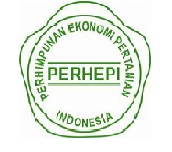Pemberdayaan Wanita Tani melalui Produksi dan Manajemen Produksi Kerupuk Batang Pisang di Jenawi Karanganyar
Retno Rosariastuti, Sumani Sumani, Aktavia Herawati
Abstract
Jenawi Subdistrict was one of the sub-districts that located in the Karanganyar Regency area which has the location of the pilot project for planting banana plants as a product of tissue culture form Agriculture Faculty, Universitas Sebelas Maret. There are many banana plants that grow well with abundant fruit production. One part of the banana plant that has not been utilized was the inside of a white banana stem called the heart of a banana stem or ares. Ares can be processed into healthy food products that have high fiber content, namely crackers. The technology or method to made crackers has never been done. This activity aims to produced ares crackers with various shapes and flavors and analyzed the economic feasibility of the business. The main objective of this activity was to improve the empowerment of women farmers as a companion husband who has the ability to help increase the family's economy by producing crackers ares. This activity was a side activity that can be done at home or together in a group of women farmers. The method used participatory rural appraisal which emphasizes innovation and technology in making ares crackers using simple technology. The program’s hope the technology was easy to adopt and sustainable because it uses simple technology. The activity begins with an explanation of the methods and stages of making crackers. The activity continued with training in economic analysis of cracker products. The results of economic analysis showed that to produce 20 kg crackers required a fixed cost of production of Rp. 33,330, - and variable costs of Rp. 564,700. Total revenue from 20 kg crackers was Rp. 920,000, - so that the total income was Rp. 321,970, -. Based on this value, the R / C Ratio value was 1.53 (feasible), the B / C Ratio was 0.53 (feasible). So that based on economic analysis, banana stem crackers or ares crackers business is feasible to be cultivated and developed.
DOI:
https://doi.org/10.20961/prima.v3i1.36107
Refbacks
There are currently no refbacks.
<div class="statcounter"><a title="Web Analytics" href="https://statcounter.com/" target="_blank"><img class="statcounter" src="https://c.statcounter.com/12129415/0/f19731cc/0/" alt="Web Analytics"></a></div> View My Stats This work is licensed under a
Creative Commons Attribution-ShareAlike 4.0 International License .



.jpg)



1.jpg)











